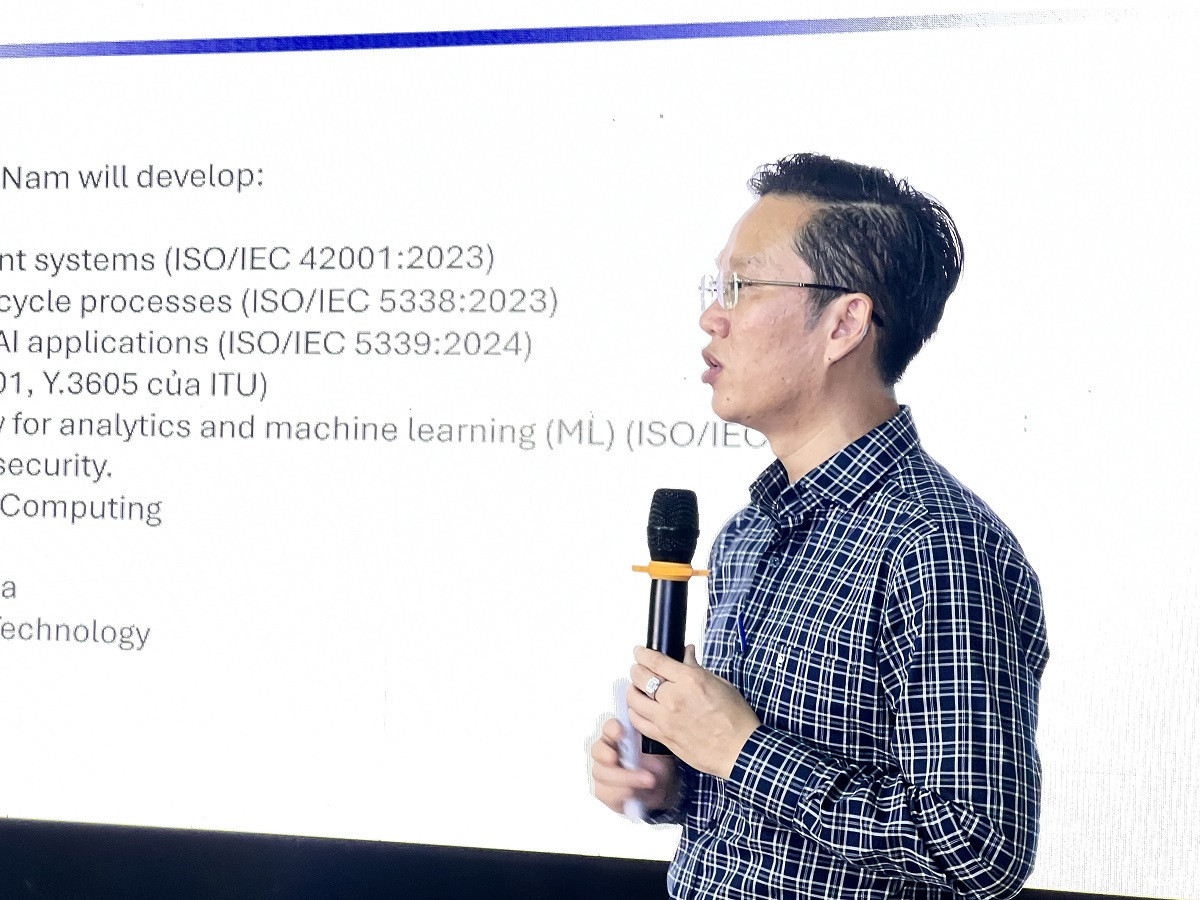
At a workshop on digital transformation and green transition in the 4.0 industrial revolution, Ha Minh Tiep, chair of the National Committee for Standards, Measurement and Quality, said Vietnam is a member of the ISO (International Standard Organization) and holds observer status in IEC (International Electrotechnical Commission). The technical committees of the two organizations have been joining forces to issue a series of standards related to 4.0 industry.
One of the standards is on AI (artificial intelligence). In December 2023, ISO and IEC issued ISO/IEC 42001, the first international management standard for AI aims at eliminating risks and danger when deploying AI apps in production and business systems, as well as helping organizations and enterprises improve their capability of penetrating markets and boost international trade. Many organizations have registered to obtain certificates on the standard.
“In 2024 and 2025, we will cooperate with MIC (the Ministry of Information and Communications), and relevant ministries and branches to concentrate on 17 AI standards. This must be done right now, or the promulgation of standards by Vietnam may lag behind development,” Hiep said about the plan to deploy AI standards in Vietnam.
The committee will also join forces with relevant agencies and organizations to build 8 standards on cybersecurity, 3 on cloud computing, 5 on IoT (Internet of Things), 3 on Big Data and 6 on nano technology.
“We are also working with the Institute of Innovations and Digital Transformation to research data-related standards in digital transformation,” he revealed.
Nguyen Quan, former Minister of Science and Technology, chair of the Vietnam Automation Association, stressed that designing standards for 4.0 industry must start from database, because data is the origin of digital transformation, and without data, digital transformation will never succeed.
“It is late to begin now, but better late than never,” Quan said.
He went on to say that previously Vietnam only set standards on tangible products, such as bowls, chopsticks and screws, but now it needs to set standards for intangible products as well, such as technological platforms and data.
“Sometimes we need to use international standards to have our standard systems satisfy requirements for national development,” Quan said.
Information, data and digital technologies have become new means of production, and building standards for intangible products plays an increasingly important role. If Vietnam can do this, the path for its international integration will be less thorny.
Vietnamese standards must be harmonious with the world
Tiep said the law on amending and supplementing some articles of the Law on Standards and Technical Regulations would be submitted to the National Assembly for opinions in October.
The new law will include the stipulation on unilaterally accepting third-party assessments for emerging technologies, or 4.0 technologies. For example, in the information technology industry, many upcoming experimental technical infrastructure fields will be allowed to unilaterally accept assessments by foreign organizations.
The new law will also include the assessments on the effects of standards and regulations. This helps avoid the scenario in which the law becomes inadequate soon after it is enacted because the compilers did not collect enough opinions from enterprises and associations.
“This happens even in information technology, there exist standards which only one or two enterprises can meet,” Hiep explained.
The National Assembly’s Committee of Science, Technology and the Environment requested to promote the role of enterprises and associations in assessing possible impacts of standards and regulations before they are issued.
Also, the draft law says that not only ministries and branches, but localities, individuals and businesses also can offer suggestions to build national standards to minimize delays in standard issuance.
Tiep takes salangane’s nests as an example. There have been only basic standards applied to the product over many years, while there is still no national standard for it. Therefore, no one knows if Khanh Hoa’s salangane’s nests are better than the products of private companies.
Meanwhile, in other countries, such key products and specialties all bear national standards.
“The Ministry of Agriculture and Rural Development (MARD) told us that the ministry will build up national standards for salangane’s nests, but such standards have not been released yet,” Hiep added.
He also recommended that Vietnam pay more attention to training in standardization.
Vietnam is one of three countries supported by SA (Standards Australia) to participate in the project on building standards for new technologies in ASEAN.
Binh Minh